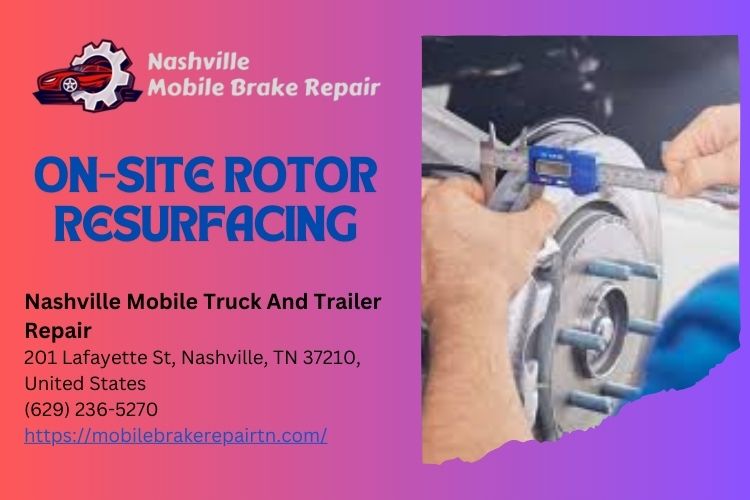Introduction
When it comes to vehicle safety, few components are as crucial as the braking system. Understanding the differences between drum and disc brakes can significantly impact your choice when seeking brake repair services. This article will delve deep into the intricacies of both types of braking systems, offering insights from a brake repair company perspective. We’ll equip you with the knowledge needed to make an informed decision when it's time for that all-important brake maintenance.
Overview of Brake Systems
Before we dive into specifics, let’s take a moment to understand what braking systems do in general. Braking systems convert kinetic energy into thermal energy through friction, which slows down or stops a vehicle. Two primary types of brake systems exist: drum brakes and disc brakes. Each has its own set of advantages and disadvantages.
What Are Drum Brakes?
Drum brakes consist of a hollow drum that rotates with the wheel. Inside this drum, brake shoes press against the drum's inner surface to create friction, slowing down the vehicle.
Components of Drum Brakes
- Brake Shoes: These are curved components that press against the drum. Drum: The metal cylinder that houses the brake shoes. Wheel Cylinder: This component pushes the brake shoes outward against the drum.
Advantages of Drum Brakes
Cost-Effective: Generally cheaper than their disc counterparts. Better at Handling Rear Weight: Often used in rear wheels where load distribution is more favorable. Longer Lifespan in Certain Conditions: In some scenarios, drum brakes may last longer due to better heat dissipation.Disadvantages of Drum Brakes
Less Effective Cooling: They tend to overheat more quickly than disc brakes. Reduced Performance Under Stress: Performance can deteriorate under heavy braking conditions. More Complex Maintenance Requirements: Brake repair services can be more involved due to their design.What Are Disc Brakes?
Disc brakes operate using a rotor (disc) attached to the wheel and calipers that house brake pads which clamp down on the rotor when braking is applied.
Components of Disc Brakes
- Rotor: The flat disc that spins with the wheel. Caliper: The mechanism holding the brake pads and applying pressure to them against the rotor. Brake Pads: Friction material pressed against the rotor during braking.
Advantages of Disc Brakes
Superior Cooling Ability: Their design allows for better heat dissipation. Improved Stopping Power: Generally provide better performance, especially under heavy loads or high speeds. Easier Maintenance by Brake Repair Companies: Typically less complex than drum brakes.Disadvantages of Disc Brakes
Higher Initial Cost: More expensive compared to drum brakes. More Prone to Wear in Certain Conditions: Can wear out faster in harsh environments or extreme conditions. Vulnerability to Water Damage: Performance can diminish if wet, although this is less of an issue than in older models.Choosing Between Drum and Disc Brakes
Choosing between drum and disc brakes involves considering various factors such as vehicle type, driving conditions, and personal preferences regarding cost versus performance.
Factors Influencing Your Decision
1. Vehicle Type
Is your vehicle primarily used for commuting or off-road adventures? Understanding how you use Nashville Mobile Truck And Trailer Repair Nashville Mobile Truck And Trailer Repair your car can guide your decision on which type of brake system is most appropriate.
2. Driving Conditions
Urban driving often requires frequent stops and starts; hence, disc brakes might be better suited for this environment due to their superior heat management capabilities.
3. Budget Constraints
Are you looking for budget-friendly options? Drum brakes may be appealing if cost is your primary concern; however, consider long-term maintenance costs as well.
How Brake Repair Services Work
Understanding how brake repair services operate can help you make informed decisions about maintaining your vehicle's braking system.
Inspection Process
A thorough inspection typically includes:
- Assessing pad thickness Checking fluid levels Inspecting rotors/drums for wear
Maintenance Tips
Regular maintenance can prolong both types of braking systems:
- Schedule regular inspections Replace worn-out parts promptly Check fluid levels frequently
Common Misconceptions About Brake Systems
Myth 1: All vehicles come equipped with disc brakes
While many modern vehicles have shifted towards disc brakes due to their performance benefits, some still utilize drum brakes—especially older models or lighter vehicles designed for cost efficiency.
Myth 2: Drum brakes are obsolete
Though less common today in front-wheel applications, drum brakes remain popular in certain rear applications where they can perform adequately under specific conditions.
FAQs About Brake Systems
1. Why choose one type over another?
Your choice depends on various factors including vehicle type, driving habits, and budget considerations.
2. How often should I replace my brake pads?
Typically every 30,000 to 70,000 miles; however, consult your manufacturer’s guidelines for specific recommendations based on your model.

3. Can I switch from drum to disc brakes?
Yes! An upgrade can improve performance but involves a significant investment in parts and labor—consult your brake repair company for advice tailored to your vehicle.

4. Do all vehicles have both types?
Not necessarily; some vehicles may only have one type while others might use both depending on design and intended use case scenarios.
5. What signs indicate my brakes need servicing?
Grinding noises when braking, a spongy feel on pedal pressure, or warning lights on your dashboard usually signal it's time for inspection or potential servicing from a professional brake repair company.

Conclusion
Choosing between drum and disc brakes involves careful consideration of multiple factors including cost-efficiency, performance requirements, and maintenance needs. Both systems offer unique advantages that cater to different driving circumstances; thus understanding these nuances empowers you as a vehicle owner when seeking brake repair services or making upgrades to enhance safety on the road.
So next time you're faced with deciding what type of braking system suits you best—or if it's time for service—remember these insights from reputable brake repair companies who want nothing but safe travels ahead!
Contact Us
Nashville Mobile Truck And Trailer Repair
Address: 201 Lafayette St, Nashville, TN 37210, United States
Phone number: (629) 236-5270
Website: mobilebrakerepairtn.com